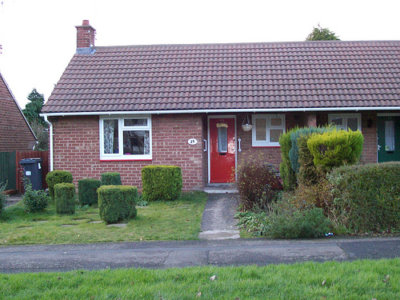Depression and Location – Is Where You Live Affecting Your Moods?
Depression is a condition which can be triggered by a myriad of factors, including childhood trauma, major life changes like breakups and redundancy, and low self-esteem.
But are depression and location also connected?
Depression and location
An American study funded by the U.S. Department of Agriculture was headed up by Penn State University economics professor and director for Rural Development in the Northeast, Stephan Goetz.
It found that where you live might be causing you up to a week’s worth more of depression a month than those in other communities. More precisely, those in areas of America with high amounts of depression saw sufferers feeling bad for on average 8.3 days a month. Whereas other regions only saw residents reporting low moods for an average of just under half a day a month.
If you extrapolate those numbers, you have one person suffering low moods almost 100 days a year compared to someone else’s twelve days. It’s a compelling difference.
(Not sure if your facts about depression or correct, or want to know more on the signs and symptoms and what you can do if you suffer? Try reading our comprehensive guide to depression).
The economic cost of depression
The research also highlighted that the economic cost of high rates of depression in a region is lowered productivity. Hardly surprising, given that one of depression’s hallmarks is a decreased ability to function.
“This is a real concern not just in the United States, but across the world,” said Professor Goetz.

By: Lydia
And what were these regions reporting low levels of ‘negative mental health days’? The suburbs, for starters.
The study found that out of rural, suburban, and city dwellers? It was the suburbanites who came on top when it comes to moods.
But aren’t suburbs hotbeds of depression?
But how could movies like “American Beauty” have is so wrong? Aren’t the suburbs populated by bored housewives and teenagers on antidepressants? Cliches aside, there is, of course, depression through all sectors of society. And rushing to buy a bungalow with a driveway is not the solution to long-term depression.
The conclusions were also only drawn from collated information, which has its limitations. The researchers looked at six years worth of information gathered from census data, a large scale telephone survey, and statistics from the Economic Research Service of the U.S. Department of Agriculture.
And at the end of the day, the study is based on reported low mood days. Not accounting for the fact that, sadly, many people still don’t report their depression for fear of the stigma it can bring.
Given the infamous ‘keeping up with the Joneses syndrome of the suburbs, it could also be that suburbanites are less likely to report depression.
Depression and location, or money and mental health?
And the suburbs are mostly populated by middle-class families without the mental stress of poverty, as opposed to the lower income families found in inner city communities and rural areas. Goetz’s study does indeed also point out that poverty is a far greater problem when it comes to mental health then the income equality that has been getting publicity.
The suburbs also tend to be freer of one of the main side effects of poverty, too — crime. Does crime really cause depression for those who live near it? It seems so.
By: Michael Cohen
A second unrelated recent study at the University of Illinois looked at the connection between signs of depression in older Latino adults and the quality of the neighbourhoods they lived in. It found that those who felt the area they lived in was safe enough to walk around were less likely to have their mild depression turn into severe depression.
The best way of all to avoid being depressed?
Perhaps the most valid conclusion that Goetz’ study made is around an ingredient that is not unique to the suburbs, city, or countryside. Or dependent of an area’s wealth.
Goetz and his team found that some of the happiest people were those who lived in a place where one felt strong social connections to others and a real sense of community.
People in such tight-knit communities reported feeling they had a network of support if life became stressful. “The more supported you are by the community, the happier you are, and the better you are able to cope with troubles,” said researcher Goetz, echoing what positive psychologists have been saying for over a decade.
Just make sure if you do find your perfect location surrounded by supportive community, it isn’t too far away from your workplace. Another conclusion of the study was that people stuck with a long daily commute reported a significantly higher amount of poor mental health days, no matter if they lived in the city, country, or a suburb.
What do you think? Are surburbanites really happier? Have you moved regions and found it helped your moods? .
Photos by O Palsson, Adam Jones, David Sawyer







Fuuuuuck yea a diff location is critical!!!! I loved living out in the southwest usa it changed my life for the better than any drugs i ever did or any pills a shady ass dr gives ya. As soon as I moved back to Ohio I was immediately Majorly Depressed as F!!!! Ohios shitty cold weather and close minded ideology destroyed me. Along with Shitty ass ohio horrible payin burnt out dead end jobs. Plus the people here generally suck. Theres no mountains or hotsprings or CLEAN not sewage rivers. Ohio sucks complete balls. I literally wouldnt wish this gray depressin shithole on my worst enemy i mean that. Location has tons to do with your mood.
I very much agree. I lived in Idaho, was outdoors all the time, had so much to do, and places to visit. Once I moved to Michigan it went downhill quick. I am depressed everyday for the past 6 years. I hate my life and don’t want to live it anymore. The place it cold, covered in mosquitoes during the summer, the crime sucks, no community support, closed minded people. There is not one place here that has not been discovered or contaminated by big companies. The state is expensive, everything about it is, they drain their people. I hate everything about this place, and it has come to the point I hate my life. I want to move but it doesnt come soon enough. I have been on so many medications that nothing helps, I have lost motivation to do anything.
…This thing called “widowhood” allowed me to FINALLY move away from the consistant ravage of Hurricanes…extremely ridiculous high homeowners, flood, and auto insurance rates AND ridiculously high A/C and Heating costs in the “Deep South”. People have no idea that the cost of living in the Deep South is much more expensive than living in the beautiful California Desert. California Desert areas are “everything-friendly” … If you value absolute enviromental beauty with dark skies…virtually zero light-pollution (so you can really can see the stars every single night) world class restaurants…easy access airport within 6 miles (relatively inexpensive for family & friends to come in to visit)…close drives to snow-covered mountains…beautiful beaches…near PERFECT weather all year…supreme healthcare…great apartments with a sense of community and safety…then perhaps you should reconsider what your shit-hole Enviroment has to offer by comparison. I moved back to the ravaged Deep south during the pandemic…to be with my loved-ones…Everyone gets trapped here with duty. And… since 2021, I’ve already experienced 2 Hurricanes…and another is on its way today. And yes…I experienced Hurricane Katrina…and Gustav…and Issac..and on and on. Never let naysayers invade your sense of self…You must decide your environment for yourself, by yourself.
Definitely. I’ve found that city life which is mostly anonymous suits me well but the love of nature and space led me to look for a rural property. The place I’m in is semi rural (mostly for partner’s work commute) which doesn’t suit so well.
This seems like a type of place / kind of living where suburban people who were used to some set of rules, consideration for others and normality of the suburbs, decided to take up a bit more space and then all the behaviour they repressed was unleashed. It’s not rural enough for proper farm life, houses are close enough to each other to hear people talking and it’s combined with loud cars, attention seeking adenalized types and inconsiderate behaviour. There is a small town narrow mindedness and an unwillingness to welcome newcomers. Strangely enough, it’s not far from a major city but it doesn’t feel like it.
Maybe if this place were near the ocean there would be a relaxed vibe. It would also be very desirable and expensive.
It feels like a place where anyone different is ostracised and the habits of everyone are not inspiring enough to mimic. I’ll be a lot happier after I’ve moved. It’s been four years here.